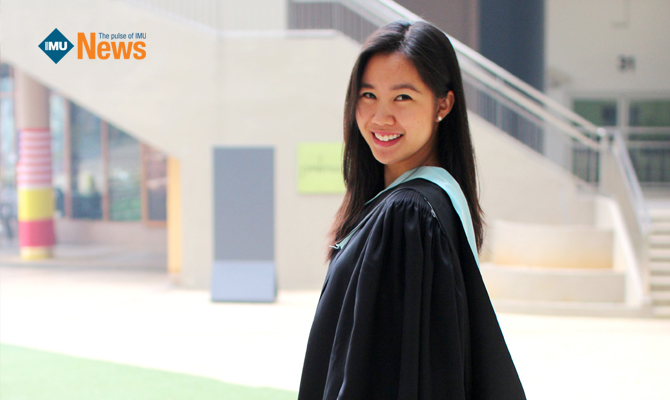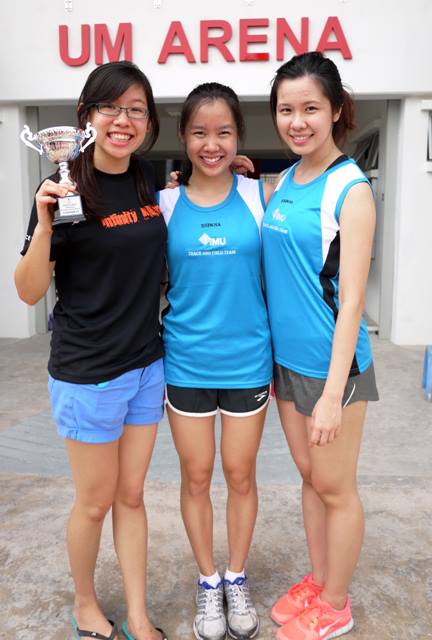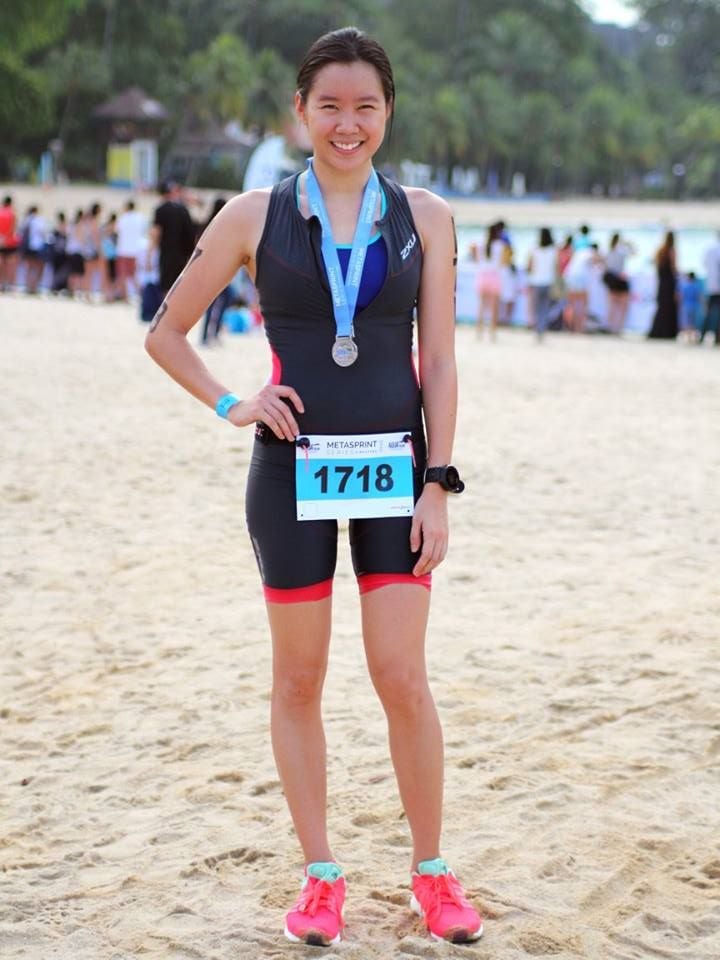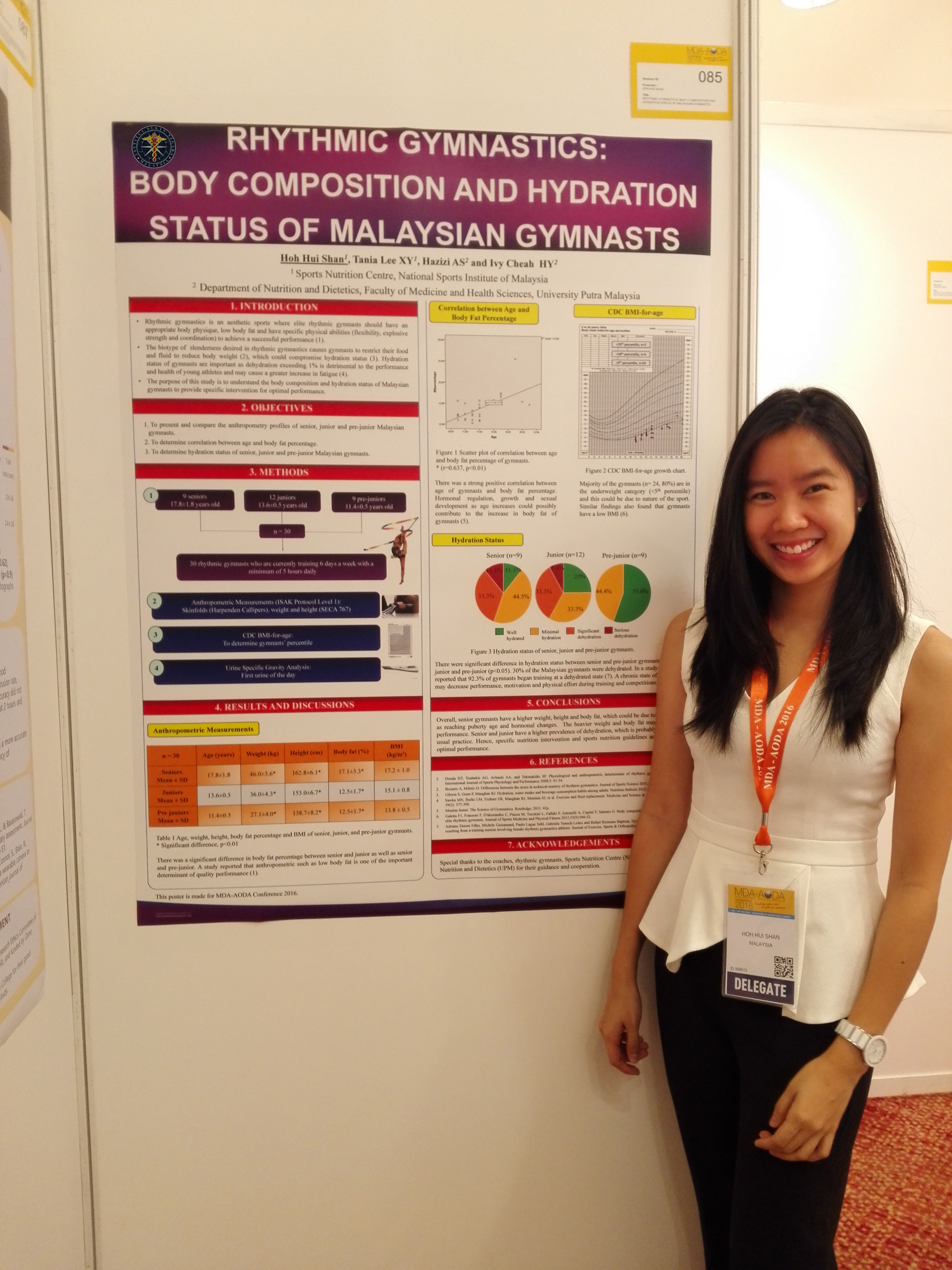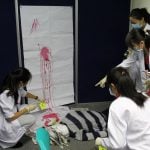 Hoh Hui Shan (better known as Shan) has always been active in extra-curricular activities when she was young. She was also a state swimmer for 6 years. Even now, she is still actively participating in races – swimming, running, aquathlon, and triathlon relays. Being in a competitive sports environment made her realise how other factors affect performance, with diet playing an important role. She also believes in good nutrition being the key to good health. With these in mind, Shan decided to pursue her degree in Nutrition and Dietetics at IMU. “At first, I wanted to be a clinical dietitian, but after university, I decided to specialise in sports. I am also happy to be recruited to work at the National Sports Institute of Malaysia as a sports dietitian, a very exciting job for me.”
Hoh Hui Shan (better known as Shan) has always been active in extra-curricular activities when she was young. She was also a state swimmer for 6 years. Even now, she is still actively participating in races – swimming, running, aquathlon, and triathlon relays. Being in a competitive sports environment made her realise how other factors affect performance, with diet playing an important role. She also believes in good nutrition being the key to good health. With these in mind, Shan decided to pursue her degree in Nutrition and Dietetics at IMU. “At first, I wanted to be a clinical dietitian, but after university, I decided to specialise in sports. I am also happy to be recruited to work at the National Sports Institute of Malaysia as a sports dietitian, a very exciting job for me.”
“Working in this sports environment, life is never dull and every day is not a typical day. We provide services to elite national athletes, such as weight management programme, nutrition education and counselling, hydration management, supplementation and so on. Sometimes we need to travel locally or overseas to meet the athletes, as not all athletes are based in Kuala Lumpur.”
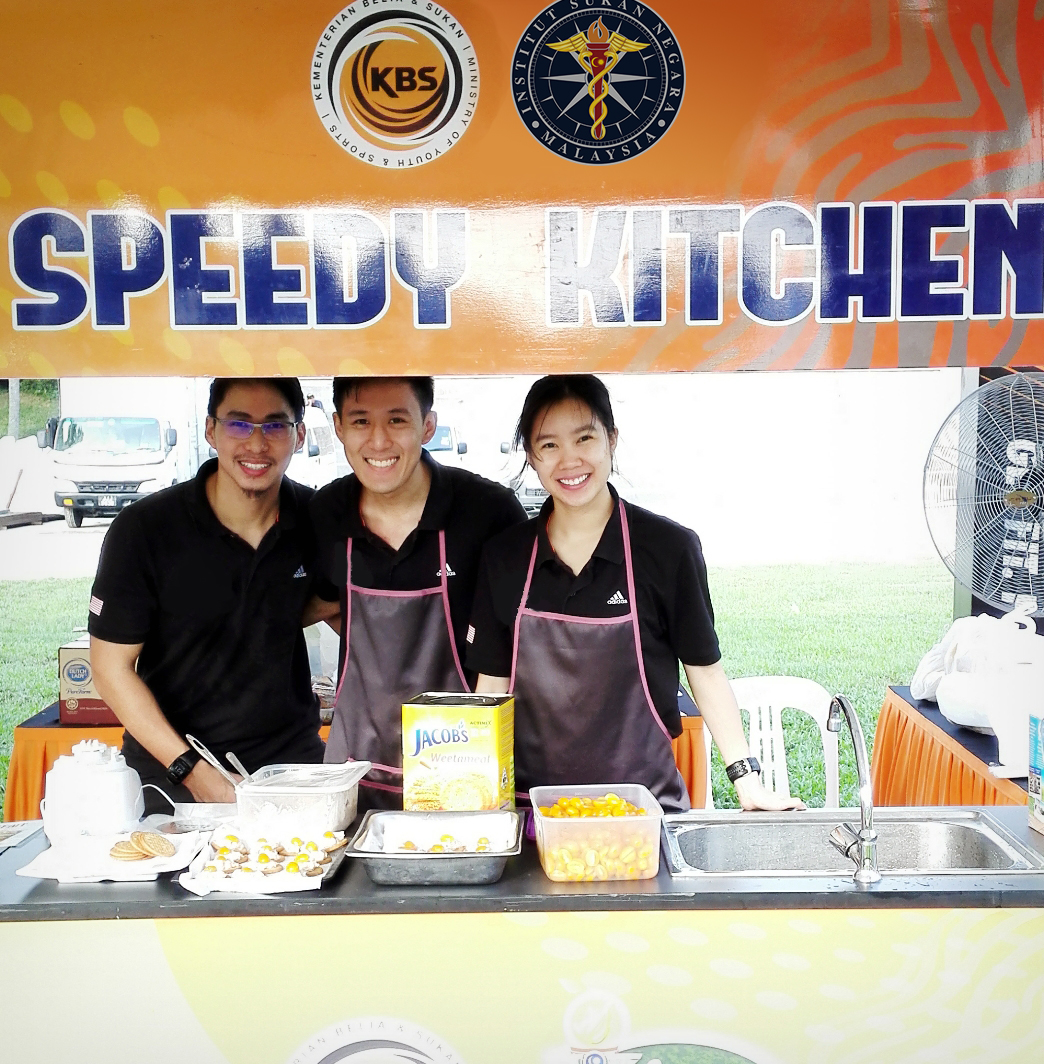 “Furthermore, this job requires multidisciplinary team work (for example coaches, medical team, conditioning specialist, biomechanist, psychologist, exercise physiologist, and performance analyst) to provide the best service to the athletes. Every athlete is different and require individual attention. We have other duties as well, such as managing the recovery station ‘Juice Reward Station’, supplement store and involvement in community work”, said Shan, who is working with the Malaysian aquatic sports teams.
“Furthermore, this job requires multidisciplinary team work (for example coaches, medical team, conditioning specialist, biomechanist, psychologist, exercise physiologist, and performance analyst) to provide the best service to the athletes. Every athlete is different and require individual attention. We have other duties as well, such as managing the recovery station ‘Juice Reward Station’, supplement store and involvement in community work”, said Shan, who is working with the Malaysian aquatic sports teams. 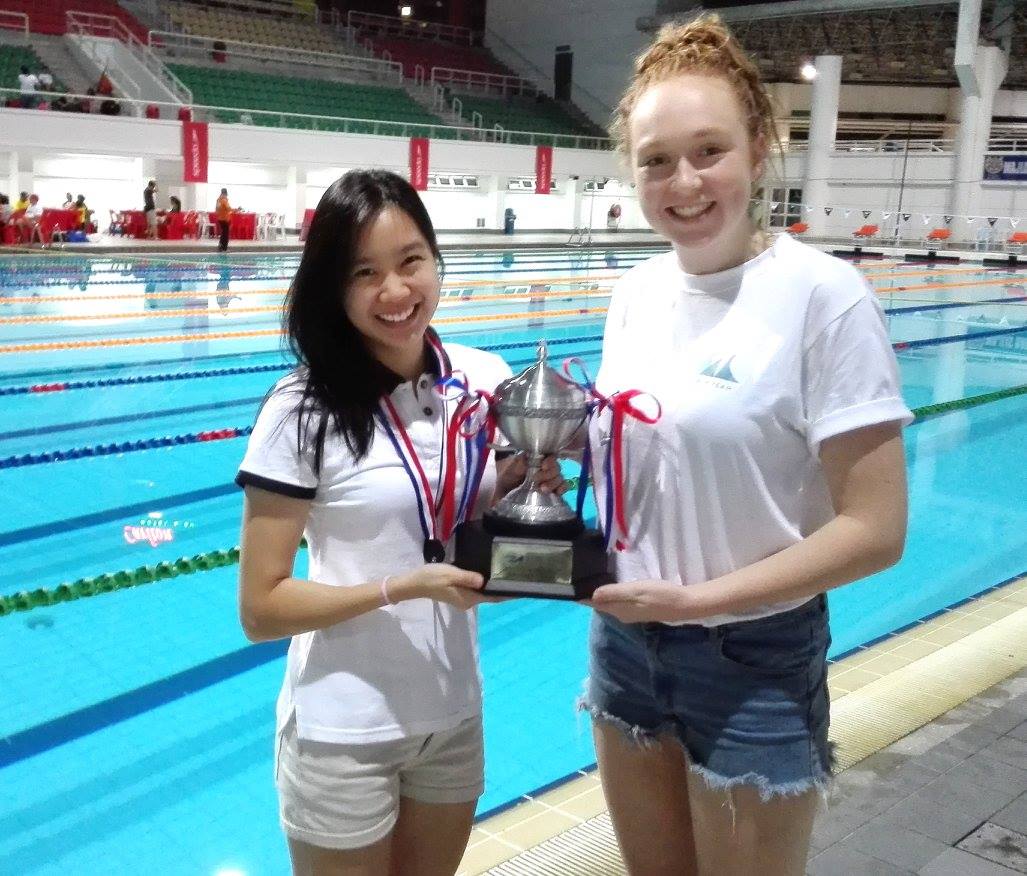 In her capacity as a sports dietitian, Shan’s main challenge is to find the best ways to help the athletes’ as each athlete and different sports have their own specific diet requirements. Prior to this, Shan pursued her degree at IMU where she believes she was truly prepared for the working world – equipping her with nutrition and dietetics knowledge and skills, grooming her well for work, and encouraging flexibility especially during placements.
In her capacity as a sports dietitian, Shan’s main challenge is to find the best ways to help the athletes’ as each athlete and different sports have their own specific diet requirements. Prior to this, Shan pursued her degree at IMU where she believes she was truly prepared for the working world – equipping her with nutrition and dietetics knowledge and skills, grooming her well for work, and encouraging flexibility especially during placements.
She remembers fondly of her time at IMU especially studying in a group with her peers, joining IMU activities and clubs, as well as involvement in the well-known annual IMU Cup. She also had a lot of memories and friendships from students of other programmes.
Shan’s advice
| Sports Nutrition for Active Individuals |
| Proper nutrition before exercise helps you to fuel and hydrate your body as well as prepare yourself to get the most out of your exercise session. Carbohydrate is a major energy source for our body. Pre-exercise snacks should be high in carbohydrate and easily digestible. Some of the snacks suitable for pre-exercise are toast with jam, fruits, cereals and buns. Usually during exercise your body will lose fluid, electrolytes and glycogen stores will be broken down to be used as energy. Therefore, if your exercise takes longer than an hour, consuming some fluid with electrolyte and carbohydrate may be beneficial to your body, for example sports drinks. Post-exercise recovery nutrition is important to replenish glycogen stores, repair muscle tissues as well as rehydrate your body. Thus, carbohydrate, protein and fluid should be taken within 30 minutes to 1 hour post-exercise to speed up recovery. Few ideas of post-exercise snacks are fruit smoothie, chicken sandwich and chocolate milk. |
| Balanced Diet and Exercise for Public |
| A balanced diet means having the right balance of nutrients daily to maintain health. The Malaysian food pyramid is a visual tool to guide the public to a healthy diet. The food pyramid consists of levels that indicate each food group’s recommendation of serving size. The higher the food group is in the food pyramid, the less of the food should be taken. A balanced daily intake should consist of 4-8 servings of rice, noodles, bread, tubers and cereals, 3 servings of vegetables, 2 servings of fruits, 1-3 servings of milk and milk products, ½-2 servings of poultry, meat and eggs. Eat less fats, oil, sugar and salt. This recommendation is in accordance to the Malaysian Food Pyramid. The tip is to eat in moderation and select a variety of colourful food to fill your plate. In addition to a balanced diet, being physically active plays a role in maintaining health and well-being, as well as reducing risk of various chronic diseases. It is recommended to have at least 150 minutes of moderate-intensity aerobic exercise weekly for substantial health benefits. Be active in as many ways as you can and avoid sedentary habits. |
| Those who are studying Nutrition and Dietetics |
Enjoy university life, it’s not just about studying and excelling in exams, extra-curricular activities are just as important too. Besides that, IMU lecturers are always helpful, don’t be shy to ask whenever you need help. University life has always been the most memorable part of my life. Have fun and all the best, juniors!
|




